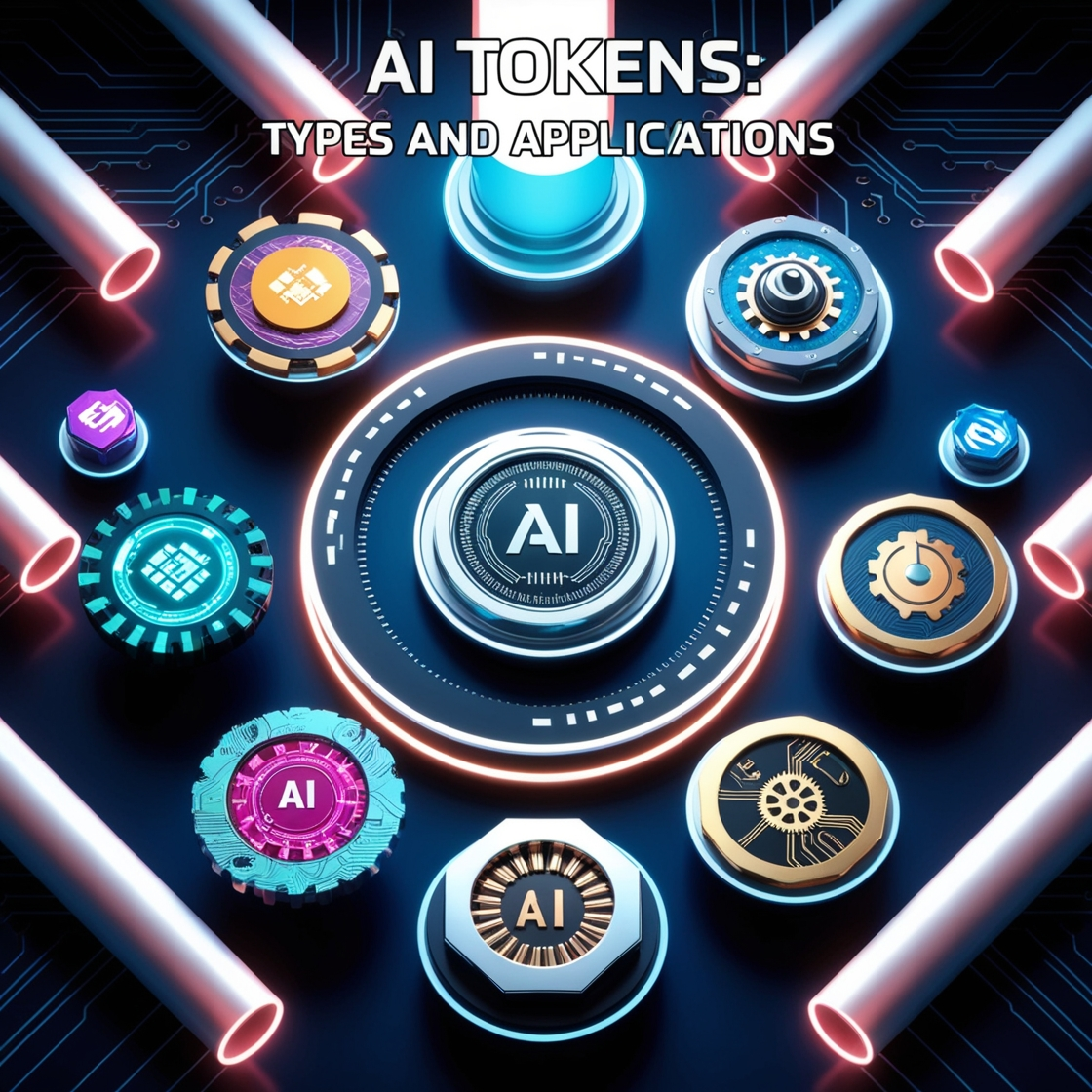AI Tokens: Types and Applications
AI Tokens: Types and Applications
AI tokens are digital assets used within artificial intelligence ecosystems to enable transactions, incentivize behaviors, and access AI services, playing a pivotal role in decentralized AI platforms. These tokens bridge blockchain technology with AI capabilities, facilitating secure, transparent, and efficient value exchange.

What Are AI Tokens?
AI tokens are cryptocurrencies or digital assets created to power platforms that combine AI and blockchain. They are typically used for governance, payments, staking, or access to AI-driven tools and services within their respective networks. These tokens help decentralize AI development and usage, fostering broader participation and innovation.
Types of AI Tokens
AI tokens come in several distinct forms, each serving a unique function within its platform. The most common types include:
- Utility Tokens: These provide access to AI services or tools, such as natural language processing or image recognition APIs.
- Governance Tokens: Used to vote on proposals affecting the platform’s development and direction.
- Staking Tokens: Required to participate in network validation or to earn rewards in decentralized AI networks.
- Incentive Tokens: Distributed to users who contribute data, computing power, or algorithmic improvements.
Key Applications of AI Tokens
AI tokens are reshaping multiple industries by powering AI-integrated platforms and encouraging decentralized innovation. Below are major applications:
1. Access to AI Services
Many AI platforms offer machine learning tools, data processing services, and predictive analytics. Tokens are used to pay for these services, enabling seamless microtransactions.
2. Decentralized AI Marketplaces
AI tokens facilitate peer-to-peer exchanges of data, models, and services in decentralized environments, empowering developers and users alike.
3. Incentivizing Contributions
Projects reward users who contribute valuable data, computing resources, or improvements to AI models, ensuring constant platform enhancement.
4. Governance Participation
Token holders can propose and vote on platform upgrades or strategic changes, fostering a community-driven approach to AI development.
Notable Examples of AI Tokens
| Token | Platform | Primary Use |
|---|---|---|
| AGIX | SingularityNET | Access and governance for decentralized AI services |
| FET | Fetch.ai | Autonomous agent interactions and payments |
| OCEAN | Ocean Protocol | Data sharing and monetization |
| NRG | Numerai | Incentivizing data scientists and model staking |
Benefits and Challenges
Benefits
- Promote transparency and trust in AI systems
- Enable monetization of data and models
- Reduce reliance on centralized AI providers
Challenges
- Regulatory uncertainty around token classification
- Scalability and network performance
- User adoption and technical barriers
Conclusion
AI tokens represent a transformative convergence of blockchain and artificial intelligence. By enabling decentralized access, governance, and incentivization, these tokens are laying the foundation for a more open, efficient, and collaborative AI ecosystem. As the technology matures, we can expect even more innovative applications across industries.
FAQ
What are AI tokens used for?
AI tokens are used for accessing AI services, participating in governance, staking, and incentivizing contributions in decentralized AI platforms.
Are AI tokens a good investment?
AI tokens can be a high-risk, high-reward investment depending on the project’s adoption and utility. Always research thoroughly before investing.
How do AI tokens support decentralization?
They enable peer-to-peer interactions, remove centralized control, and allow community governance, fostering an open AI development environment.



